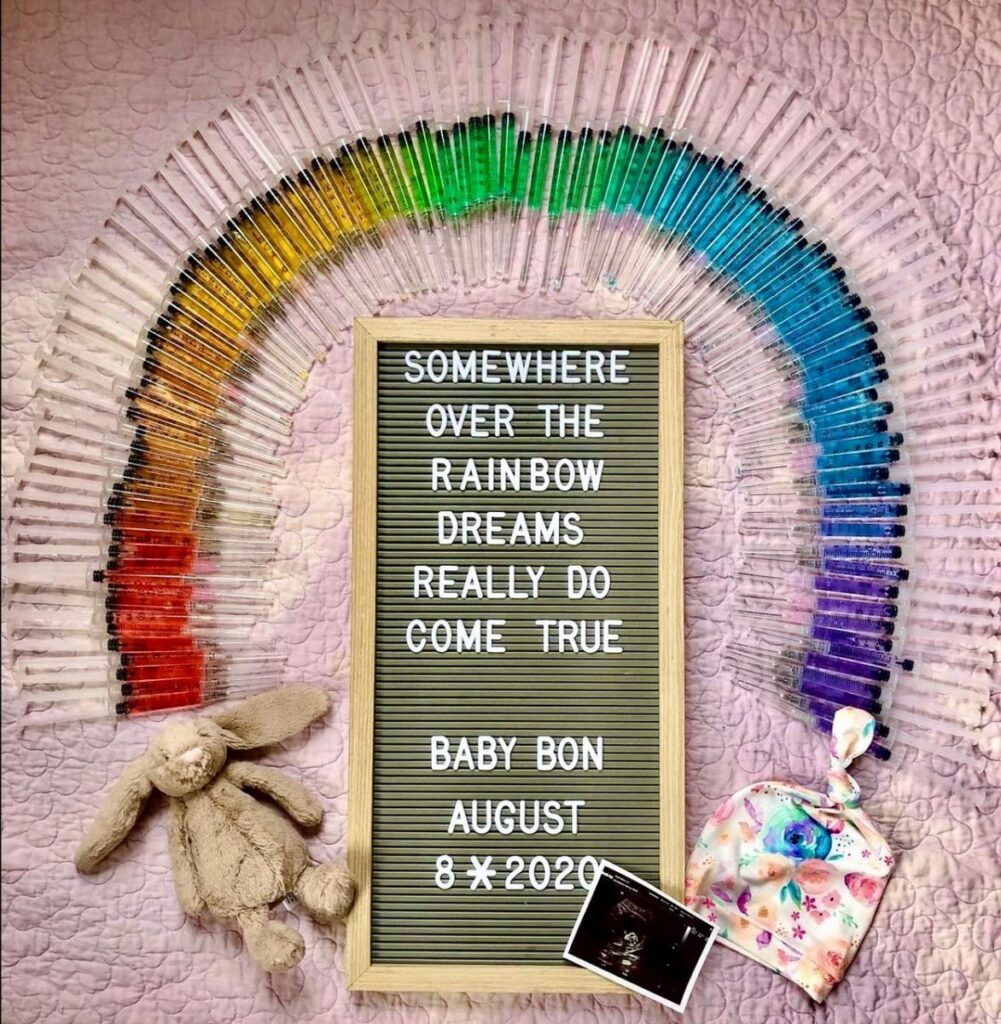
National Infertility Awareness Week®
National Infertility Awareness Week® (NIAW) runs April 21-27 and aims “to empower you and change the conversation around infertility.” The movement was founded in 1989 by RESOLVE and includes free resources, social media campaigns, support, events, and more. This week, we are sharing the stories, struggles, and triumphs of two BAHS team members: Katie Montalbano and Sara Kean. We thank Katie and Sara for their bravery and vulnerability in opening up and helping others to feel less alone during their own journeys.
Learn more here: www.infertilityawareness.org
Interview with Katie Montalbano,
BAHS Director of Internal Development
You have inspired so many women with your IVF journey. Looking back on those beginning chapters where your fertility was becoming an area that required help, what words can you offer someone going through those early challenges right now?
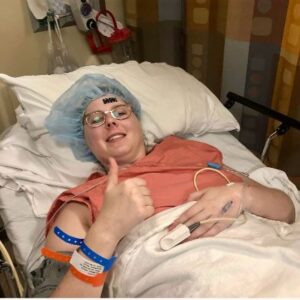
Know first that you are not alone, in the past, there has been such a stigma attached to infertility that nobody talked about it! I think that’s just now starting to change as more women start to talk about their personal fertility journeys and with social media you can connect with other people struggling too.
I suffered a miscarriage with my first pregnancy at 12 weeks and by sharing my own experience I discovered how many women have been in similar situations. Going through the physical loss of your baby, the depression that settles in afterward, the yearly reminder of a birthday that you’re not celebrating, it’s a horrible club to be a part of – but there is a small piece of you that can sigh a relief that at least you are not alone.
I would advise others to try and establish a healthy support system. My husband Steven was by my side the whole way, but our families and close friends were also super supportive. Sharing does help. I was extremely lucky to have my whole British American Household Staffing office rooting for me while I was dealing with schedule changes to accommodate monitoring hours and various doctors’ appointments.
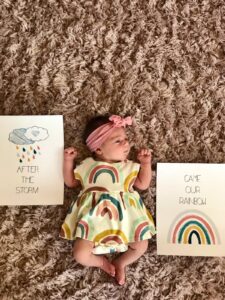
There are so many routes to becoming a parent, just because it might not happen in the ‘classic’ way doesn’t mean you’ll love your child any less or that you are any less of a woman or a parent.
What do you feel women as young as in their twenties should know regarding their fertility and how struggles can be mended with so many options nowadays.
I think the one major misconception I had regarding fertility was that I would get pregnant as soon as we started trying. I always thought that as soon as you ‘start trying’ you would get pregnant within a month or two but realistically there are only 2-3 days per month you could technically get pregnant, it all relies on your ovulation. I didn’t track my ovulation days until we were like 6 months into trying! A lot of the time it doesn’t happen right away
Also, I always thought infertility was something to worry about when you were older. I had no idea it affected younger women. I was 28 when we realized we would have to seek help. Another thing to keep in mind is that infertility is not just a woman’s problem, some issues can affect men as well.
There are so many different pathways to becoming a parent- naturally, IUI, IVF, donor eggs/sperm/embryos, surrogacy, adoption, etc, it’s hard not to become discouraged but ultimately there’s the right journey for everyone.
Modern medicine or holistic therapies? Or a little of both?
I would say a little of both. I’m all for modern medicine- without my reproductive endocrinologist and the groundbreaking studies my practice takes part in, I wouldn’t have been able to even have Luna. But I do think there’s a little magic behind some of the holistic therapies. For instance, after both of our IVF transfers, we immediately did acupuncture which has been proven to aid in success rates.
If you could tell your 21-year-old self something right now, what would it be?
I think I had this image and goal in my head of having the ‘perfect life’ before I was 30 – have the dream job, get married, buy the house, have the first baby by 30 – back then I wanted 4!
I think I would tell myself now to relax a bit more, enjoy the fun and not have major responsibilities yet. I’d also tell myself that it’s going to be a rollercoaster ride to reach those goals, there are going to be a ton of ups and downs involved with each thing you want to check off on your list, you’ll have some dark times, but you will get through them, and you’ll be stronger because of them.
Raising children is inevitably challenging when you’ve got a demanding career. What advice can you offer to new mothers feeling overwhelmed when trying to adjust?
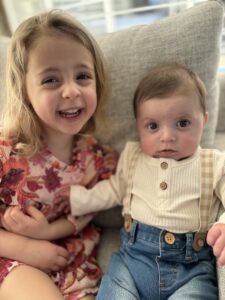
Take your time- you can’t expect yourself to jump back in and work like you worked pre-baby. You now have new priorities and sometimes work is going to have to take a back seat to baby and sometimes you’re going to have to let baby play on the tummy-time mat just a little bit longer so you can get that email out. Eventually, you’ll get the hang of it. Also, accept ANY help you are offered.
How has working for an all-female company like British American Household Staffing who proudly support mothers in the workplace helped with your adjustment time in becoming a new mom?
It’s hard for me to put into words how grateful I feel to British American Household Staffing for their constant compassion and support. I never worried that Anita wouldn’t understand my fertility journey and what sacrifices I had to make at work. I could focus on maintaining a happy and healthy pregnancy and then on taking time when my baby was being extra fussy!
Do you feel being a mother in the social media age is a blessing or a curse – and why?
I think it’s both honestly. I personally feel it’s been a big blessing, especially with my infertility. I was able to join different groups and follow various accounts of other women who were going through similar experiences (pregnantish, resolveorg). But I do know a lot of women struggle with following various influencers who try to make ‘Mom life’ seem so easy and glamorous. Still, I like to follow more realistic accounts that show that ‘Mom life’ is more about skipping showers and wearing spit-up-covered sweats all day because that’s all you can manage to do (Mother.ly, ScaryMommy, betchesmoms).
Sara Kean’s Shares Her Journey To Motherhood
BAHS Senior Placement Specialist
I have always known I wanted to be a mom. From the age of 5! I spent my life dedicated to children in one way or another, from teaching to nannying. My journey to motherhood began in 2016, when I was unexpectedly diagnosed with infertility at the age of 29. I had just started trying to conceive as a single mother by choice, and after my first failed IUI (the first of the hundreds of acronyms you learn in infertility) my OB suggested I get a full work up just in case, even though she had no reason to suspect I had any issues based on my health and history. The work up included emotionally and physically painful tests, and the results showed that I had severe diminished ovarian reserve (DOR), low AMH, a completely blocked right fallopian tube, and Premature Ovarian Aging (POA). I was devastated, but not willing to give up.
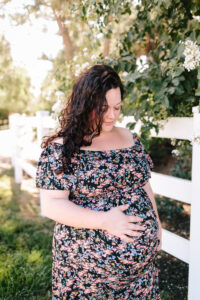
We tried 3 medicated IUI’s timed to my left fallopian tube, and then it was recommended I move to IVF. The only thing I had going for me was my age, at 30/31 years old, it was expected I would have good quality eggs. My first round of IVF/egg retrieval was unsuccessful, with 4 eggs retrieved, 3 fertilized, but 0 making it past day 2 due to poor quality. More devastation. Even my Dr. was stumped.
But still I was not ready to give up. I spent the next 6 months doing anything and everything to help my body from the inside out, we added a few new meds to my protocol, and IVF round two got me 3 eggs, 2 fertilized and looked good, and I did a fresh day 3 transfer of both embryos to give them the best chance at turning into blastocysts. Somehow, luck and science were finally on my side, and one of those embryos “stuck!” In 2019 I was pregnant with my miracle. She is now my amazing and precocious 4.5-year-old.
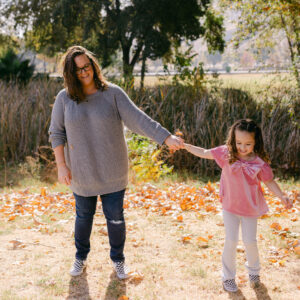
The rollercoaster of infertility can be so isolating, and emotions span all the highs and lows; from hope to despair, from shame to acceptance, from guilt to anger. There is no emotion you won’t encounter on this journey. With the support of my family, friends, and infertility community on social media, I was able to find my way through each stage. For any person in any stage of this journey, I hope you find your way through the rollercoaster, and if nothing else, know you are not alone.
Sara and Katie Recommend…
Related Blog Posts
Introducing Sarah Rueven, Founder of Rooted Wellness
